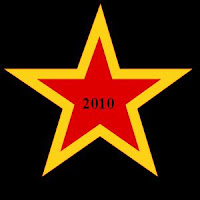
2010

Polls

Humanism

Buddhist?

I do consider myself to be the bane of all those who seek to capture and use followers for a movement, a trend or a religion. I consider myself to be 'one-being-striving-to-become-consciously-truthfully-responsibly'. Some would call me a 'free-thinker', but I do more than just think.
I do not deprive myself of the right to make judgments, decisions, evaluations, criticisms, or bad jokes. I do take responsibility for my words and actions to the best of my ability.
There is a common misconception that those who are non-violent, direct, optimistic, socialistic, intelligent and responsible are easily confronted by violence, mocking, chiding, cynicism, gangsterism. This is high-school thinking. And, unfortunately, many people in the general population do not evolve socially, emotionally or psychologically after high school. This is the price they pay for conforming to the identity that has been handed to them by society.
The title of this blog, "Buddha's Pillow", is a riddle, a provocative play on words, which, I would hope, those who have seriously studied Buddhism and other bodies of thought will understand with a smile. To those who are looking for their own Truth in my words, I simply suggest you are looking in the wrong place. If this blog has any worth, it will simply be a spark in a combustible mind.
Stupidity

Opportunism

Opportunism is a term used in politics and political science. It forms an important rationale as well for transaction cost economics. It is interpreted n different ways, but usually refers to one or more of the following:
....a political style of aiming to increase one's political influence at almost any price, or a political style which involves seizing every and any opportunity to extend one's political influence, whenever such opportunities arise.
....the practice of abandoning in reality some important political principles that were previously held, in the process of trying to increase one's political power and influence.
....a trend of thought, or a political tendency, seeking to make political capital out of situations with the main aim being that of gaining more influence or support, instead of truly winning people over to a principled position or improving their political understanding.Most politicians are "opportunists" to some extent at least (they aim to utilize political opportunities to their advantage), but the controversies surrounding the concept concern the exact relationship between "seizing a political opportunity" and the political principles being espoused
Milton Friedman, the Father of Contemporary Narcissistic Greed, in my opinion, is quoted as saying, "One man's opportunism is another man's statesmanship."
The problem is this: Media and politics have merged in our electronic age. Media has made politics a spectator sport. This is, of course, intentional. The powers who hold the media wish to hold the world's vision and shape it to their liking. The Fourth Estate, a free and somewhat anarchic press (newspapers), has disintegrated under electronic capitalism. The anarchy exists on the Web, but it is only anarchy within the boundaries of commercial capitalism. It is bourgeois anarchy. One must have a computer and a certain amount of capital, as well as technical education, to get one's message actually seen on the Web. In order to influence society in any way in the world of virtual information, one must subscribe to Google Ads or other mechanisms of capitalism. And this trend is becoming more and more entrenched.
So, as media and politics do their dance, politics effect media as well. And, as media is effected, or infected, with political opportunism, the whole public discourse becomes opportunistic. As the whole public discourse becomes opportunistic (think: bipartisan, extremist, materialistic, etc.), people themselves become opportunistic. Human beings tend to mimic their leaders. Now, more than ever, human beings study their leaders by being bombarded with constant information about them. Perhaps this explains why Sarah Palin has become a perfect storm of a relatively ignorant beauty queen, elevated to national political figure.
I wish I could say the leaders have taken this to heart and put their houses in order under the weight of their responsibility to the public they represent and influence. They have not.
The Oprah-ization of the population is one result. To have the light of the Oprah spotlight shine on your life is salvation in the modern culture in the US and, increasingly, in the rest of the world, as it becomes infected by American media. The Oprah spotlight now comes in many forms: American Idol, Survivor and dozens of other reality TV shows. The book-publishing industry has been particularly infected with Oprah-ism, since it was soon discovered that her magic wand can make or break an author's sales record. An author's sales record is what determines the quality of what is published more than ever in increasingly attention-deficient times.
So, what happens when a world becomes overpopulated by one predatory species, infected by opportunism? I think we are beginning to see exactly what happens in our environment and social structures. Sharp divisions between the wealthy and vast majority of struggling-to-be-wealthy. With these divisions, environmental fall-out is inevitable. China and India, among the latter class, refuse to consider curbing their carbon emissions, for one example.
As for 'American culture', what else could evolve in a country which tries to idealistically apply the illogically mutated principles of slave-owners from two centuries ago to a present world that has absolutely no scientific relationship to that past? If America turned to its present with hard and discerning eyes, it would walk away from its self-righteous meddling in the affairs of other nations with shame and embarrassment. Perhaps it would then tend to its own health and survival.
War









